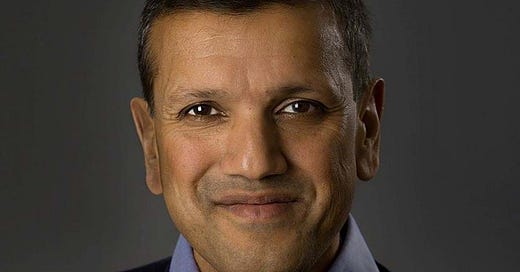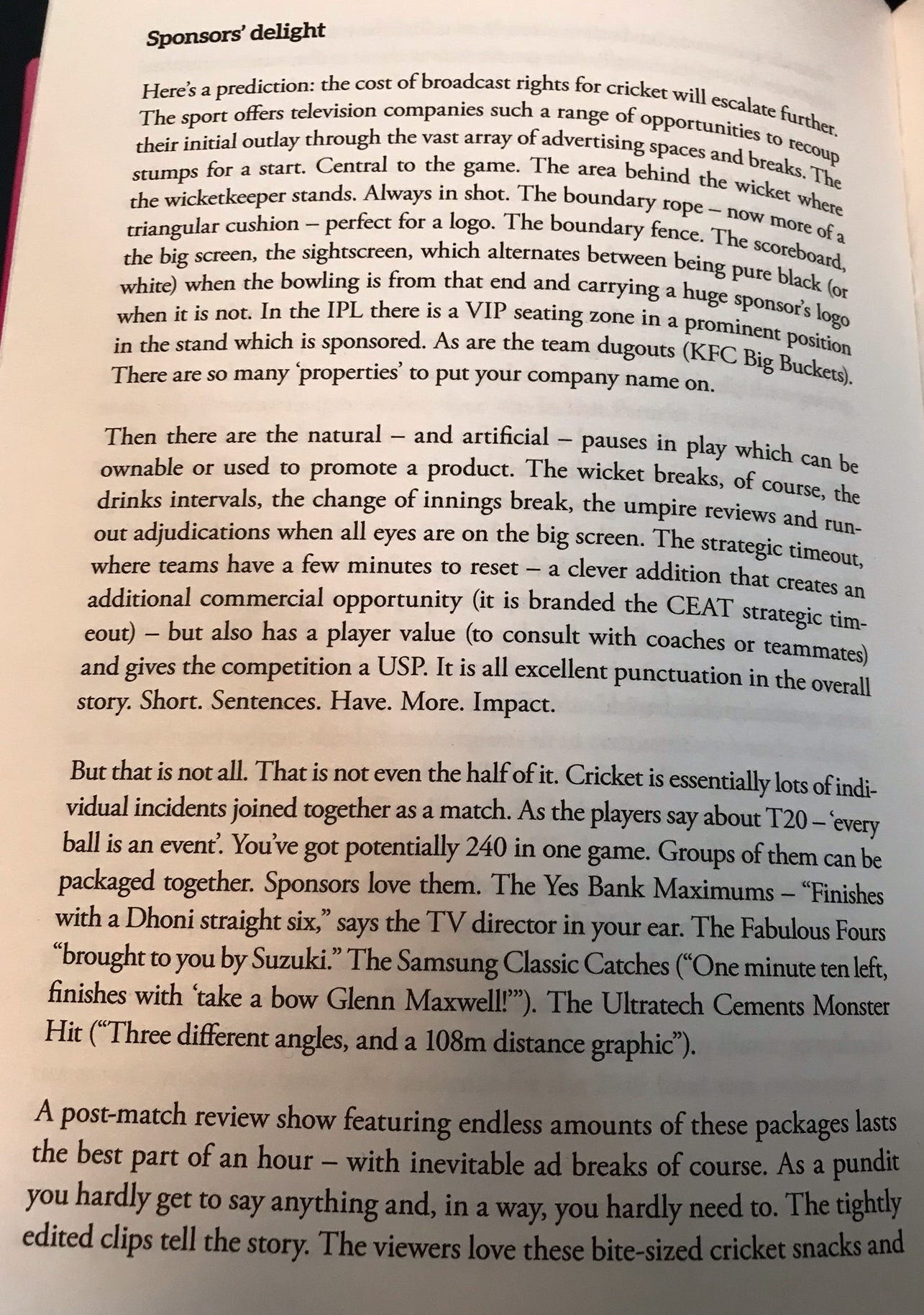The IPL franchise owner's guide to the sports business
In this newsletter:
New podcast with Rajasthan Royals owner Manoj Badale just dropped.
The most underrated number is two: The IPL stat that explains everything.
Virat Kohli’s day rate will make management consultants blush.
‘Yes Bank Maximums’ and 32 other sponsorship activation ideas.
That Luis Vicente podcast in four pull quotes, including the one about super leagues.
Meet the owner
Born in India but brought up in England, Manoj Badale has built a career around sport and technology investment, via Blenheim Chalcot, the company he created with business partner Charles Mindenhall.
Badale is the front man for a consortium of investors in the Royals, which includes Lachlan Murdoch, the co-chairman of News International.
Philip Jansen, the BT Group chief executive, Ron Kalifa, the former Worldpay vice chairman, and Ed Wray, one of the founders of the betting exchange Betfair, have agreed to become shareholders in the Rajasthan Royals outfit.
The businessmen are acquiring their interest through the vehicle Emerging Media, which is 100% controlled and run by Royals co-founder Manoj Badale and which now owns 51% of the Royals franchise.
Badale has co-written a book, A New Innings, which attempts to parse the lessons of the IPL for the rest of us.
It’s a treasure trove of data:
After twelve years, the IPL is valued at $6.3billion.
The most successful franchises at around $300-400million.
The first IPL TV deal was $1billion for ten years (to Sony).
The current deal is for $2.5billion for five years (to Star).
Current TV ad rates around the IPL are $14,000 for a ten second slot.
The price of a team shirt sponsorship is in the $2-5million region.
Virat Kohli’s day rate for advertising is $700,000.
But maybe the key number is this:
The IPL is one of only two professional sports leagues in the world where all of its franchise teams are profitable.
Why? Secure and growing revenue matched by control over wages costs. Closed leagues, no risk of relegation, salary caps. That’s the dream investment scenario for private money that’s hovering around sport. And the absence of these features is what’s driving the restlessness with the status quo among elements of European football.
Another key data point is the variation on player wages to turnover ratios.
Major League Baseball 61%; NFL, NBA and NHL are at around 58%; Premier League averages 56%.
The IPL is skewed far more in favour of the franchise owners than the players, with a salary to turnover ratio between 30% and 50%. Badale puts this low number down to the success of the player auction and the limited role of agents. But as media rights rise, so too will player unrest, particularly when they read Badale’s book.
Here’s an intriguing bit of detail below on how the cap is tied to TV rights income, and has a high-low limit to ward off short term profiteering by unscrupulous owners.
With the NFL as the model, it’s unsurprising that there’s a distinctly American feel to the sponsorship activation:
That Luis Vicente podcast in four quotes:
On the pro-argument for a European Super League
On the resistance preventing genuine collaboration in the sports business:
I was hoping the threat of Covid would be the moment when the sports industry works together. It will only happen when people feel threatened for their existence. It will be the last thing they do. There is a resistance within the industry to work together. they are looking for what’s good for them.
On the FAANGs
The biggest data company in sport is Facebook. And what they and Amazon are doing in sport is not the same as Eleven, or DAZN or Sky.
Sport brings emotional blindness. Our defences are down, so it brings more transactional opportunities to their platforms.
Will they accelerate to dominate? Maybe, but for now Amazon and Facebook are experimenting. They know the sports industry is losing strength. It has less money and is more dependent on getting cash.
They are getting more for their money. And they are even being lauded as a saviour of the industry. I don’t see Facebook being as aggressive as Amazon. They know football fans sit on their platform. And they know that all the biggest rights holders are putting content on their platform for free, or near free.
On venture capital’s role in sport
I have a warning for sports industry: investment funds are not banks.
Listen to the whole thing here.
Enjoy this newsletter? Tell your friends
Subscribe to the Unofficial Partner podcast.
Sign up to this newsletter and spread the word on social media.
Follow @RichardGillis1 and @PaulPingles (the ill-judged Twitter handle of Sean Singleton, the UP co-founder).
Over 80 people have left gushing five star reviews on Apple Podcasts - click the image to add your view.







